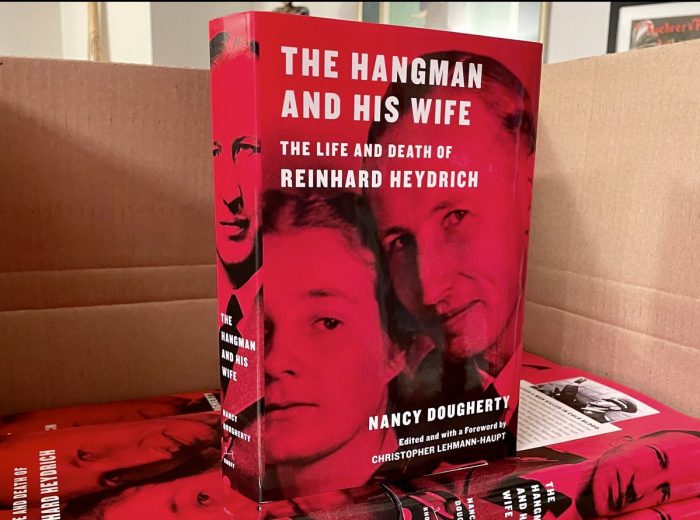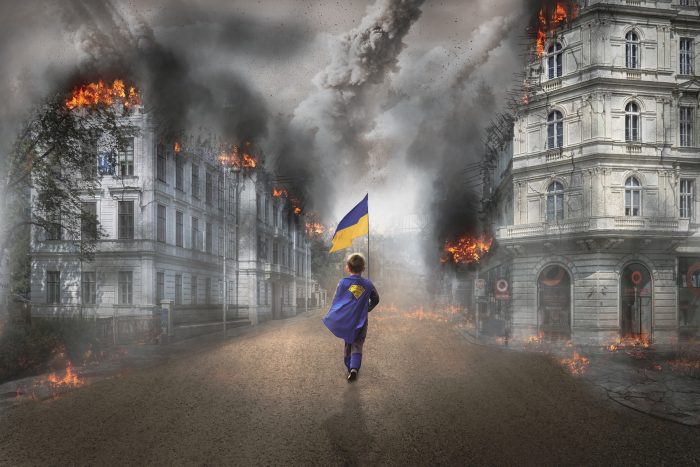By Leah S. Dunaief

Driving along a residential street in what seemed from doorbell videos to be a white Prius, a man tossed a plastic bag on each lawn as he moved along. It might have been a newspaper delivery, but it wasn’t. It was a package of hateful flyers whose words were directed against Jews. The bags contained rice or pebbles to weigh them down and keep them from blowing away in the wind.
Police have been investigating the hate messages delivered to homes in Rockville Centre, Oceanside and Long Beach in Nassau County and have blamed an anti-Jewish group for the activity, which has also occurred in other cities in the country. Whether these groups are aligned through the internet has yet to be determined. But we do know that the internet has carried hateful messages throughout the world, a far cry from the original idea that digital connectivity could be only a positive platform for revealing despots’ brutality in far corners of the globe.
We now know the internet can be a powerful tool to radicalize otherwise ordinary people who might be susceptible to the hateful messages. But how do ordinary people become radicalized?
A book was just published that attempts to deal historically with that subject by focusing on Reinhard Heydrich, who became the head of the SD (the intelligence service) and the Gestapo as well as an architect of the Final Solution for the Third Reich. “The Hangman and His Wife,” by Nancy Dougherty, tells of a man without ideological roots, who was not a fervent believer and only joined the Nazi Party in 1931, two years after his future wife, Lina. Yet he began what the senior New York Times book reviewer, Christopher Lehmann-Haupt, who wrote the forward to the book, described this way.
“One searches in vain for a rational explanation of Heydrich’s descent into evil. No single biological fragment satisfies.”
According to the book’s author, Heydrich evolved from a musically gifted, intelligent and lonely little boy into a monstrous, hyper-rational technocrat with a photographic memory and unmatched organizational abilities. How he was perceived may have been a starting point. He had “striking Aryan looks,” and for Heinrich Himmler, who first interviewed him, and who “was weak-chinned and squinted from behind thick glasses … a physically unimposing” figure, Heydrich fit the Nazi ideal. “For all their focus on Nordic physical perfection, the Nazi leaders were a bunch of misfits … Goering was fat and jowly; Goebbels was clubfooted.” Hitler himself did not match the paragon. Here was this tall, blond candidate for head of the SS, who would be a poster child of Aryan perfection in his new uniform. He must have loved that.
Further, a close relative had a Semitic-sounding last name, and “he was shadowed by rumors that there was Jewish blood in his family and mocked during his nine years in the navy; one former roommate attested that ‘everyone more or less took Heinrich for a Jew,’” according to author Dougherty.
And this from another bunkmate: “there is no doubt that ambition was his characteristic peculiarity … On all occasions, he wanted to be outstanding — in the service, in front of his superiors, with the comrades, in sportsmanship and in bars.” Put that together with “his Luciferian coldness, amorality and insatiable greed for power,” according to Dougherty, and he became head of the Gestapo until he died in his Mercedes convertible from an assassin’s grenade on May 27, 1942. He received a full-dress state funeral from Hitler.
So do those personal qualities plus opportunity explain the emergence of a hate monger? Could any of these bag-tossers today become deeply evil and potentially homicidal? Or are they merely practicing freedom of speech? Do they just wish to stand out and be seen? Is capacity for malignant behavior what Freud called the “death instinct?” Or, as the book reviewer, Daphne Merkin, suggests, is there an inherent perverse glamour in evil?






